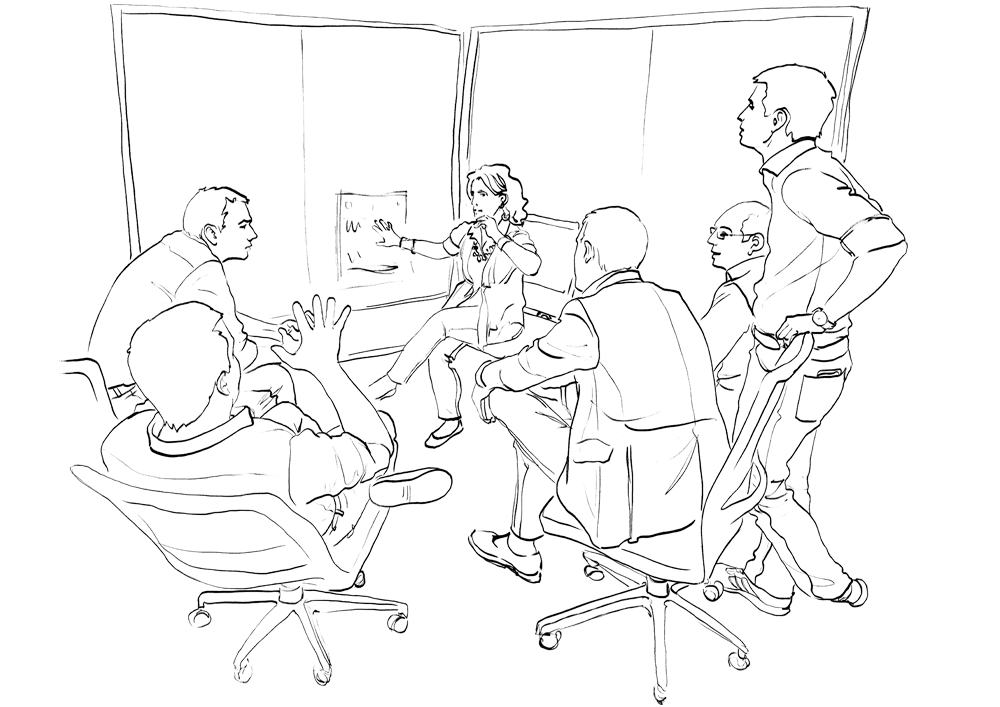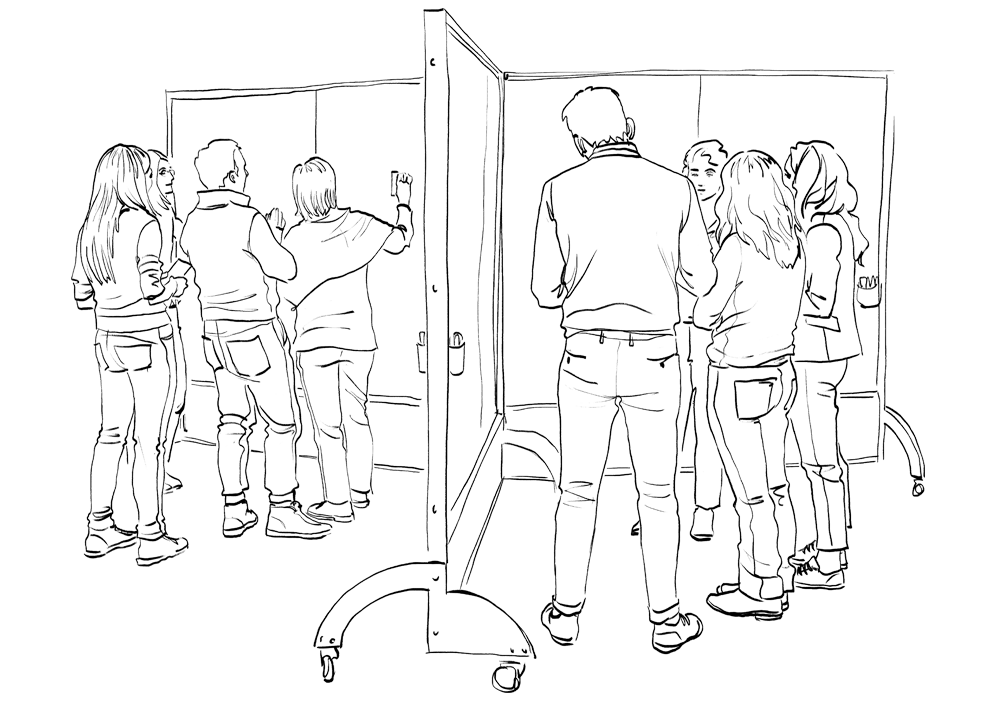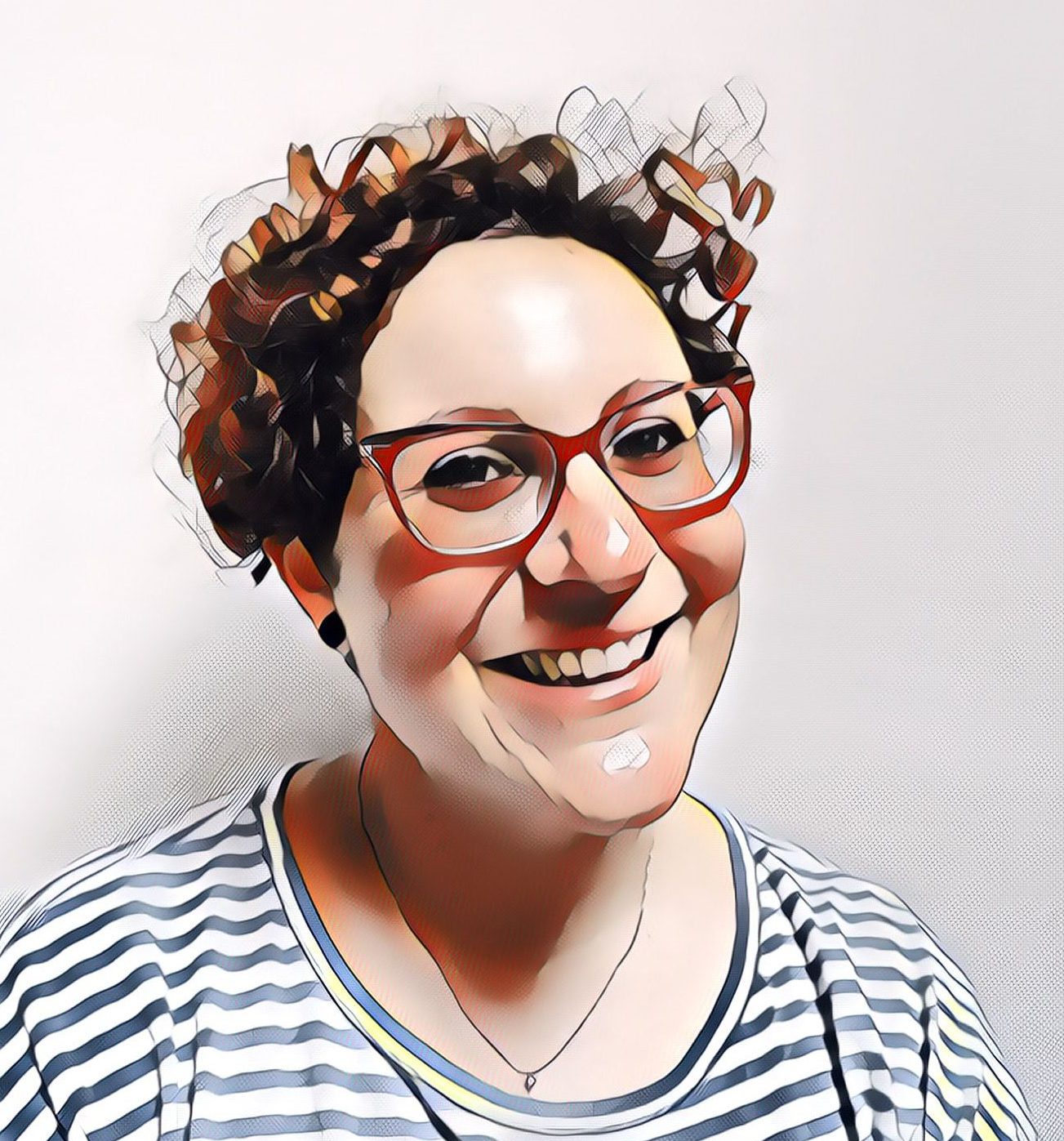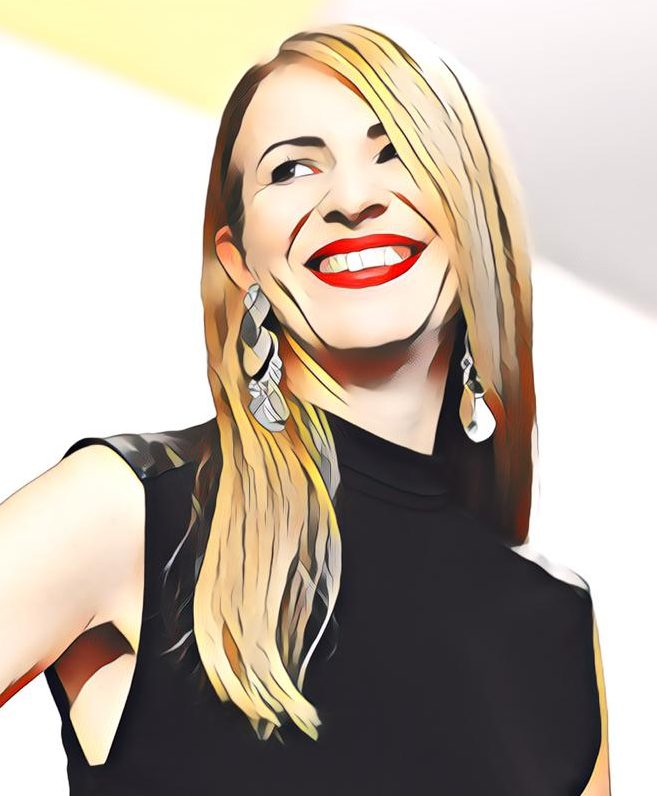The essence

The essence of our work is transforming individual actions and intents into a collective force able to generate not a linear transformation but an exponential one.
By creating paths, formats and intellectual, physical, digital spaces that emphasize collaboration and interaction between individuals, we are convinced that not only working teams will be able to reach extraordinary results, but each individual involved may evolve and develop (new) essential skills to live in the best way the complexity in which we live and move.
In this way this kind of organizational, social, cultural transformation will create an impact intended to last for years.
Transformative catalyzaction
Conversaction

So begins the origin of the transformation that we know: an initial dialogue for the understanding of the nature of the issue, its challenges and ambitions and for co-planning the best combination of the needed elements to give it a start.
Collaboraction

Catalyzation comes into and stirs up the need of collaboration. Some used collaborative working procedures may be new meeting formats for small groups or for large scale ones, new experiments of digital interaction and new spaces and ways of interaction in daily activities often risk to stem transformation.
Acceleraction

Acceleration comes about thanks to a progressive and continuous engagement of the group of people involved in the project, and thanks to small but substantial changes in the way of “doing things”. These procedures are very often accelerated by a reconfiguration of the working spaces, of the people involved, of the tools used. More often these procedures allow the sharing of skills and experiences between the group involved and the WeOne team.
On what occasion
There are situations that, to be met, very often need to choose an approach more than a precise solution. WeOne brings a particular attitude in dealing in a new and structurally transformative way complex challenges related to:
- Creation of paths of exponential innovation
- Organisational, social and cultural transformations
- Acceleration in processes of change
- Acceleration in the development of ideas
- Creation and redefinition of community and networks (formal or informal)
- Acceleration of planning and implementing paths
- Launch of new products/services
- “Collaborative and participated” meetings or conferences on large scale
- Paths of “accelerated learning”

Every format also foresees the creation of a supporting plan for the implementation of the ideas arose of a duration that may vary from 3 to 10 weeks.
From consultants to catalysts
We are a group of professionals with a collaborative attitude passionate of innovation and organisational acceleration.
According to the nature of the project, the problem to be solved and the social architecture of the people involved in the project, the team of WeOne reconfigures itself in terms of quality, professional variety and number (the team may be from 4 to 25 persons).
WeOne acts as a catalyser. It does not provide solutions: it creates and designs pathways that induce thoughts, unusual questions and innovative answers to complex problems. It does not only search “fine-tuning”, but acts to stimulate “mind-tuning”. Supports. Facilitates. Designs. Combines. Acts.
Leadership team
For over 20 years, Alberto has translated his previous experiences matured in the corporate and start-up world into a new way of working, able to nurture large organizations with the same attitude that makes small companies grow, innovate and accelerate by creating a strong and united team.
“Togetherness” has always been a critical dimension of Alberto’s way of working. Building teams, sustaining massive efforts over time by supporting each member and ensuring both performance and the growth of individuals have been parts of
his practice and his research.
Alberto has promoted, designed and implemented more than 400 working sessions (also on-line) with ambitions, sizes, and characteristics each time different: from formulating strategies to developing leadership, from collective and individual learning to the making and the launches of new products, services or policy for different realities.
The organizations that have applied to him, in Italy and abroad, go from the traditional ones to the governmental ones, of no- profit nature, to universities.
These organizations include the Harvard Business School, the World Economic Forum, Bocconi University, Volkswagen Group, FCA Group, Piaggio Group, Vodafone, Telecom Italia, Campari Group, Pernod Richard, Cartier, Ferrero, Unicredit, BNP Parisbas, ICCREA Bank, Banco BPM, ING Bank, Generali, Axa Italy, Agos, Perfetti-Van Melle, Techint Group, TeamSystem, Zambon Group, Alès Groupe, Galderma, Ipsen, Naos, Ganassini, Roche, Regione Lombardia, eBay, Bip (Business Integration Partner), Ernst & Young, EDGE Foundation, the Forum of the Young Global Leaders, Leonardo Group, the Organization of Economic Cooperation and Development (OECD).
He is the author of the book Innovation Rhapsody, published by Scheiwiller for the editor 24Ore Cultura
Previously Alberto worked for l’Oreal in Paris; opened the German branch for the Gruppo Della Valle, in Düsseldorf; he collaborated with Schroeder Ventures, founded the Italian subsidiary of Nautica Enterprises U.S.A., he co-founded in 2003 Architects of Group Genius and he founded WeOne in 2015.
In over 18 years of experience in the field of cognitive science and collaborative strategy, Carla has served different types of organisations, both public administrations and international private organisation. Her ability is to to design and facilitate dynamics and innovative processes that lead diverse groups of people to transform their behaviour and thus the context they live in.
After 4 years serving as Community and Communication Director of Culture Action Europe – the largest network for cultural organisations and institutions with more than 80.000 members, she served as Senior Advisor to the Vice Mayor in charge of cultural development for the City of Rome. During this experience she collaborated with the “Innovation for Behavioural Change Policies” Unit with a group of international experts and policy makers to develop public policies that aim at change perceptions and behaviours in citizens.
Carla has led and facilitated over 200 collaborative sessions for clients such as Harvard Business School, Roche, Ipsen, OECD, EDGE, FIAT Chrysler, Bocconi University, Independent Sector, Acumen Fund, Vodafone, Leonardo Group and many more. Prior to the pandemic, she led and produced over 10 online Jam Sessions with participants from all over the world and time zones. She also leads one-to-one sessions to support individual transformation with neuroscience principles and new behavioural patterns.
As an expert in innovation, she is currently collaborating with the UCLG – United Cities and Local Governments network – UN SDG Action, ASVIS and the City of Rome to develop new strategies and approaches to include cultural participation in the next wave of SDGs, coordinating a task force made of cities’ representatives, scientists, artists and citizens. She is also TEDxRoma co-organizer
Expertise in complex worldwide events with up to 85.000 attendees.
Managing all aspects from site selection, hiring and coordinating staff and suppliers, logistics, administration, negotiating contracts, both legal and fiscal, establishing and adhering to budgets and deadlines, transcending expectations making the impossible, possible.
Self motivated, as well as a strong team player
From 2013 to 2021 she was editor-in-chief of Cosmopolitan, the best-selling women’s magazine in the world. After graduating in Literature and Philosophy at the University of Trieste, she moved to Milan, where she started as an economic reporter at MF / Milano Finanza, following listed companies in the fashion and luxury sector. She have worked in many editorial offices including D lei La Repubblica delle Donne, Flair and Grazia. She plays the trumpet and the electric bass in a rock band.
Instagram: @francescadelog1
Complicit of transformation

Starting a path of transformation is a delicate choice that is important (today perhaps unavoidable) for any organization deciding to undertake it.
We are deeply respectful and grateful for the trust that has been given to us by each company, agency or organization that has decided to work with us. For this reason we have decided not to name anyone, just as we prefer not naming any project – often very delicate and risky – that we have done with them.
This relationship of complicity and confidentiality is the basis of our way of interpreting work. It is much more interesting to cite the three main methods that, individually or combined together, have influenced and deeply inspire our professional practice.
Matt & Gail Taylor
Matt & Gail Taylor, two masters in complex collaborative paths, have been able to activate what they have called Group Genius, that is the ability of a group of individuals who – within a structured and very sophisticated process – succeed in creating higher order solutions. Matt & Gail are for us not only two masters, they are two extraordinary persons who after many years we proudly consider as friends.
Design Thinking Process - D.School Standford University
More than a constant inspiration, Tom and David Kelley’s work and the 5 phases of the Design Thinking process are a true reference point for those interested in designing a new product or service, putting strong elements of imagination, co-design and fast prototyping at the core of one’s work, and above all the person for whom the solution, the product, the service is being designed (i.e. human-centred design).
Exponential Organizations - Singularity University
Salim Ismail’s work and the ten elements represented in the model are becoming an increasingly important reference also for the large and more structured organizations which seek new responses that may anticipate (and not undergo) the future and grow not linearly but exponentially.



